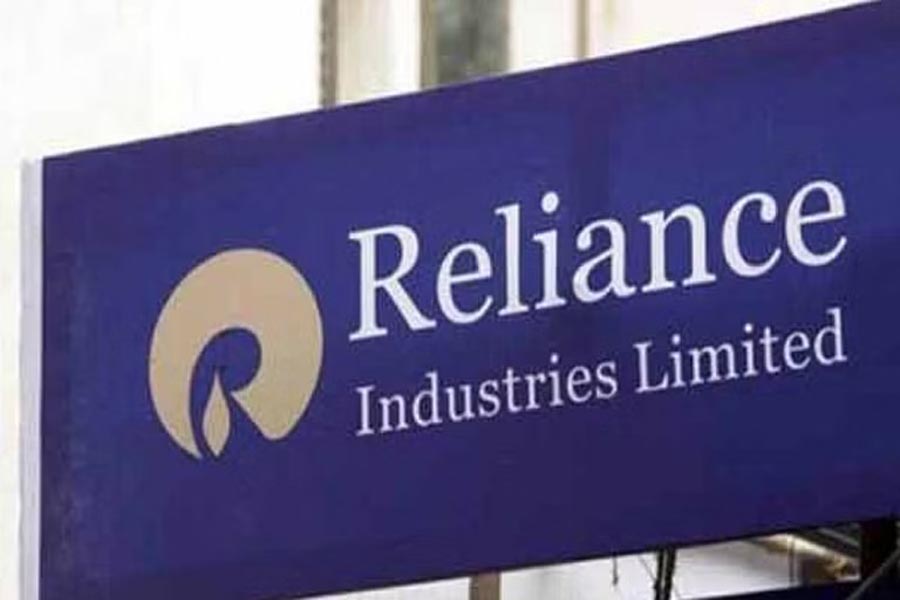Reliance to start gas production from MJ field this quarter

NEW DELHI: Reliance Industries Ltd, India’s largest company by market value, will commence natural gas production from its deepest discovery in the KG-D6 block this quarter, meeting 15 per cent of India’s gas demand.
KG-D6 off the Andhra coast is India’s only deepwater block under production. The block averaged 20 million standard cubic meters per day of production in the January-March quarter, the company said in an investor presentation post-presentation of the March quarter earnings. Reliance and its partner, UK supermajor BP are now nearing the start of production from their giant MJ deep-water project, which will significantly boost gas output from the prized east coast asset.
”MJ field is expected to commence production in 1Q FY24 (April 2023 to March 2024),” it said.
The company, which is the operator of the block, earlier planned to start production in the December quarter, but it was delayed by three months.
Reliance and BP are spending about USD 5 billion on further developing KG-D6 through three different projects, aimed at rejuvenating gas production from the offshore asset. While the first two developments—R-cluster and Satellite Cluster—have started gas production, MJ is now nearing completion.
Start of MJ will take KG-D6 gas production to 30 mmscmd in FY24, Reliance said in the presentation. ”Testing and commissioning underway in the MJ field,” it said. ”One well opened as part of the ongoing testing of the integrated production system.” The company has already sold 6 mmscmd of gas to companies in the city gas, power and fertiliser sectors. The two partners plan to use a floating production system at high-sea in the Bay of Bengal to bring to production the deepest gas discovery in the KG-D6 block.
The MJ-1 gas find is located about 2,000 metres directly below the Dhirubhai-1 and 3 (D1 and D3) fields—the first and the largest fields in KG-D6 block. MJ-1 is estimated to hold a minimum of 0.988 trillion cubic feet of contingent resources. The field also has oil deposits. Both gas and oil will flow from wells drilled below seabed to the Floating Production Storage and Offloading, where they will be stripped of impurities. Oil will be loaded on tankers for sale to refineries while gas will travel to onshore through an under-sea pipeline and onwards to customers. South Korea’s Samsung Heavy Industries-built double-hulled FPSO is built to handle 60,000 barrels per day of liquids and around 12.7 million cubic metres per day of gas. The floater is expected to have condensate production capacity of 30,000 bpd and water-handling capacity of at least 20,000 bpd, with the potential for the latter to be increased. R-Cluster started production in December 2020 and the Satellite Cluster came on stream in April next year. While R-Cluster is expected to reach plateau gas production of about 12.9 mmscmd in 2021, Satellite Cluster will have a peak output of 6 mmscmd. The MJ field will have a peak output of 12 mmscmd.
Oil-to-telecom conglomerate Reliance has so far made 19 gas discoveries in the KG-D6 block. Of these, D-1 and D-3—the largest among the lot—were brought into production from April 2009 and MA, the only oilfield in the block, was put to production in September 2008. While the MA field stopped producing in 2019, the output from D-1 and D-3 ceased in February 2020. Other discoveries have either been surrendered or taken away by the government for not meeting timelines for beginning production. Located on Block KG-D6 in water depths of between 600 and 1,200 metres, the MJ development includes seven production wells to be linked to the FPSO via a pair of subsea drill centres. MJ’s reservoirs are about 2,000 metres below the producing D1-D3 gas fields and the development is expected to be the third largest on the block. Reliance holds a 66.67 per cent operated interest in KG-D6, with BP holding the remaining 33.33 per cent.





